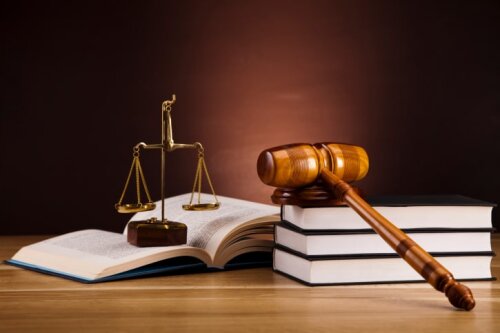Best Guardianship Lawyers in Dominican Republic
Share your needs with us, get contacted by law firms.
Free. Takes 2 min.
Or refine your search by selecting a city:
List of the best lawyers in Dominican Republic
About Guardianship Law in Dominican Republic:
Guardianship in the Dominican Republic involves legally protecting and representing persons who are unable to care for themselves due to age or incapacity. This legal arrangement appoints a guardian to make decisions and act on behalf of the incapacitated person, ensuring their welfare and best interests are upheld.
Why You May Need a Lawyer:
It is essential to seek legal advice in guardianship matters to navigate complex legal proceedings, ensure the proper legal steps are followed, and protect the rights of the incapacitated person. A lawyer can provide guidance, assist with documentation, and represent your interests in court if necessary.
Local Laws Overview:
In the Dominican Republic, guardianship is governed by Law No. 136-03, which outlines the legal procedures and requirements for appointing a guardian. The law prioritizes the best interests of the incapacitated person and aims to safeguard their rights and welfare.
Frequently Asked Questions:
1. What is the process for establishing guardianship in the Dominican Republic?
The process involves filing a petition with the court, providing evidence of incapacity, and presenting a proposed guardian. The court will evaluate the situation and appoint a guardian if deemed necessary.
2. Who can be appointed as a guardian in the Dominican Republic?
Generally, a family member or close relative can be appointed as a guardian. If no suitable candidate is available, the court may appoint a professional guardian or a government agency.
3. What are the duties and responsibilities of a guardian in the Dominican Republic?
A guardian is responsible for making decisions related to the incapacitated person's healthcare, finances, and overall well-being. They must act in the best interests of the person under their care.
4. Can guardianship be revoked or modified in the Dominican Republic?
Yes, guardianship can be revoked or modified if circumstances change or if the guardian is found to be neglecting their duties. This usually requires a court proceeding to make the necessary changes.
5. Are there alternatives to guardianship in the Dominican Republic?
Yes, alternatives such as powers of attorney, healthcare proxies, or advanced directives can be used to designate decision-makers for specific areas without the need for full guardianship.
6. How long does guardianship last in the Dominican Republic?
Guardianship typically lasts until the incapacitated person is able to care for themselves or passes away. However, it can be reviewed periodically to ensure it remains necessary and in the person's best interests.
7. What happens if a dispute arises over guardianship in the Dominican Republic?
If a dispute arises, the court can intervene to resolve the issue and determine the best course of action for the incapacitated person. It is advisable to seek legal advice to navigate such situations.
8. What are the costs associated with guardianship in the Dominican Republic?
The costs may vary depending on the complexity of the case and legal fees. It is advisable to discuss the fees with your lawyer and understand the financial implications of seeking guardianship.
9. Can a guardian be held legally responsible for their actions in the Dominican Republic?
Yes, a guardian can be held legally responsible if they fail to fulfill their duties or act against the best interests of the incapacitated person. It is essential for guardians to adhere to their obligations under the law.
10. How can I find a reputable lawyer for guardianship matters in the Dominican Republic?
You can seek recommendations from trusted sources, conduct online research, or contact legal organizations for referrals to experienced lawyers specializing in guardianship matters.
Additional Resources:
For more information on guardianship in the Dominican Republic, you can contact the Dominican Bar Association or consult legal resources available online. These resources can provide valuable insights and guidance on guardianship laws and procedures.
Next Steps:
If you require legal assistance in guardianship matters in the Dominican Republic, it is advisable to consult with a qualified lawyer who can guide you through the process and represent your interests in legal proceedings. Schedule a consultation to discuss your specific situation and explore the best course of action to protect the rights and welfare of the incapacitated person.
Lawzana helps you find the best lawyers and law firms in Dominican Republic through a curated and pre-screened list of qualified legal professionals. Our platform offers rankings and detailed profiles of attorneys and law firms, allowing you to compare based on practice areas, including Guardianship, experience, and client feedback.
Each profile includes a description of the firm's areas of practice, client reviews, team members and partners, year of establishment, spoken languages, office locations, contact information, social media presence, and any published articles or resources. Most firms on our platform speak English and are experienced in both local and international legal matters.
Get a quote from top-rated law firms in Dominican Republic — quickly, securely, and without unnecessary hassle.
Disclaimer:
The information provided on this page is for general informational purposes only and does not constitute legal advice. While we strive to ensure the accuracy and relevance of the content, legal information may change over time, and interpretations of the law can vary. You should always consult with a qualified legal professional for advice specific to your situation.
We disclaim all liability for actions taken or not taken based on the content of this page. If you believe any information is incorrect or outdated, please contact us, and we will review and update it where appropriate.
Browse guardianship law firms by city in Dominican Republic
Refine your search by selecting a city.











